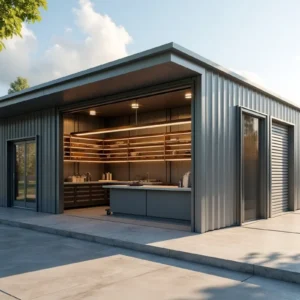Proactive water heater maintenance is essential for homeowners looking to avoid emergencies and save money. Regular check-ups can prevent unexpected breakdowns and extend the lifespan of your system by several years, reducing the risk of water damage, cold showers, and costly repairs. For more details on water heater care, visit https://lutzplumbing.com/water-heaters/.
Avoiding potential issues ensures your home’s hot water supply remains uninterrupted throughout the year. Without consistent attention, water heaters are more likely to develop leaks, corrosion, and efficiency problems. Well-maintained water heaters can last a decade or more, while neglected units often require early replacement.
Contents
Differentiating Water Heater Types
Water heaters generally fall into two main categories: tankless and tank-style units. Tankless heaters offer energy-efficient, on-demand hot water, typically requiring descaling to prevent mineral buildup. On the other hand, traditional tank-style heaters store and continuously heat a set volume of water—meaning they require routine checks for sediment accumulation and corrosion inside the tank.
Regardless of the model, each type has unique care requirements to optimize performance and life expectancy. The U.S. Department of Energy shares excellent energy-saving tips for water heaters that are valuable for owners of all models.
Monthly Maintenance Walkthrough
Simple monthly tasks can make a significant difference in protecting your water heater. Here’s a straightforward checklist for homeowners:
- Visual Inspection: Examine the tank and connections for leaks or rust.
- Check for Leaks: Look around the base and near fittings for moisture or pooling water signs.
- Test the Area: Touch the area around the heater for dampness and listen for unusual noises.
- Monitor Temperature: Confirm that water temperature is consistent and not fluctuating unexpectedly.
Annual Checklist for Water Heater Care
In addition to monthly tasks, deeper annual maintenance keeps your system operating efficiently:
- Flush the Tank: Drain several gallons from the tank to remove sediment. This process prevents buildup that reduces efficiency and can shorten your heater’s life.
- Check the Pressure Relief Valve: Carefully lift the valve’s lever and ensure water flows before snapping it back. Replace if it doesn’t release water or reseal properly.
- Test Thermostat Settings: For safety and energy efficiency, check the thermostat annually and set it to 120°F. Consult the owner’s manual to make adjustments.
Signs Your Water Heater Needs Immediate Attention
Recognizing early warning signs can make the difference between a minor repair and a major problem:
- Noisy Operation: Rumbling, knocking, or popping sounds may signal sediment buildup.
- Rusty or Discolored Water: Rusty water from hot taps usually means the tank is corroding.
- Puddling or Leaks: Any water around the heater or from fittings requires urgent action to avoid water damage.
If you notice these red flags, turn off your heater’s power (or gas supply) and call a qualified plumber. These steps can help limit damage and keep your home safe.
Impact of Water Quality on Maintenance
Your home’s water quality directly affects the frequency and type of water heater maintenance required. Hard water, rich in minerals like calcium and magnesium, leads to faster sediment and scale formation in tank and tankless systems. This can lower efficiency and increase the risk of malfunctions. Regular flushing and occasional descaling are critical for areas with hard water.
Final Thoughts
Consistent water heater maintenance is the key to reliable performance, energy efficiency, and cost savings. Whether you own a tankless or tank-style system, proactive care prevents small issues from becoming major problems.
Paying attention to water quality, following monthly and annual maintenance checklists, and scheduling professional inspections will extend your unit’s lifespan and ensure uninterrupted hot water. By staying ahead of potential problems, you can protect your comfort and budget for years to come.




